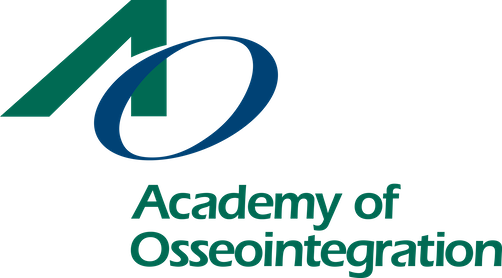-
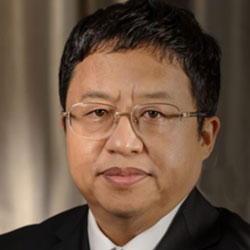 Haiyang Yu, PhD, DDS In implant surgery, a good linear guiding accuracy can be realized by static template, but it is still less than 1mm. Such accuracy, not as high as expected, can be attributed to the lack of physical measurement during the surgery. Physical measurement is an effective way to manage the implant error within the acceptable limits. Although periodontal probe is wildly used, it is not an appropriate measuring tool for implant surgery which requires accuracy less than 1mm. In order to ensure the implant accuracy, it is necessary to measure and check the crown-root ratio and angle of implants as well as the distance between implants and adjacent teeth by special measuring tools with less-than-1mm accuracy at each interoperative step. This presentation will review the evolution of the guiding methods of implant surgery and the accuracy of these methods, and elaborate on the significance and principle of interoperative physical-measurement through clinical cases. Recorded - May 19, 2022
Haiyang Yu, PhD, DDS In implant surgery, a good linear guiding accuracy can be realized by static template, but it is still less than 1mm. Such accuracy, not as high as expected, can be attributed to the lack of physical measurement during the surgery. Physical measurement is an effective way to manage the implant error within the acceptable limits. Although periodontal probe is wildly used, it is not an appropriate measuring tool for implant surgery which requires accuracy less than 1mm. In order to ensure the implant accuracy, it is necessary to measure and check the crown-root ratio and angle of implants as well as the distance between implants and adjacent teeth by special measuring tools with less-than-1mm accuracy at each interoperative step. This presentation will review the evolution of the guiding methods of implant surgery and the accuracy of these methods, and elaborate on the significance and principle of interoperative physical-measurement through clinical cases. Recorded - May 19, 2022 -
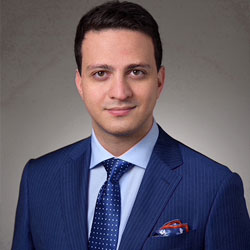 Shayan Barootchi, DMD Implant therapy has become the standard treatment for replacement of missing teeth. Nonetheless, with its popularity, there has been a rise in aesthetic and biological complications and the emergence of peri-implant diseases. This presentation will focus on the components of the peri-implant phenotype, particularly the implant soft tissue phenotype, and strategies for its augmentation and therefore, modification. The importance of keratinized mucosa on peri-implant health will be reviewed together with the various approaches to regenerate keratinized and attached peri-implant mucosa. Similarly, the key role of tissue thickness for stability and esthetics, as well as surgical approaches and biomaterials for mucosal thickness augmentation, will be discussed. This presentation will also touch upon novel methodologies for assessment and quantification of implant health and disease. Recorded - October 13, 2022
Shayan Barootchi, DMD Implant therapy has become the standard treatment for replacement of missing teeth. Nonetheless, with its popularity, there has been a rise in aesthetic and biological complications and the emergence of peri-implant diseases. This presentation will focus on the components of the peri-implant phenotype, particularly the implant soft tissue phenotype, and strategies for its augmentation and therefore, modification. The importance of keratinized mucosa on peri-implant health will be reviewed together with the various approaches to regenerate keratinized and attached peri-implant mucosa. Similarly, the key role of tissue thickness for stability and esthetics, as well as surgical approaches and biomaterials for mucosal thickness augmentation, will be discussed. This presentation will also touch upon novel methodologies for assessment and quantification of implant health and disease. Recorded - October 13, 2022 -
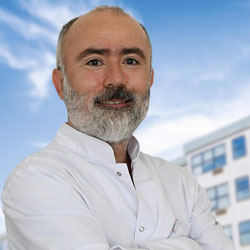 Guney Yilmaz, DDS, PhD In this presentation, detailed information regarding the surgical use of preferred hard and soft tissue lasers for periodontal treatments and implantology is going to be shared. In order to make effective use of lasers in dentistry, the basic physical principles and technical properties of lasers are going to be highlighted. Subsequently, the basics of using hard and soft tissue lasers in periodontal surgery are going to explained as well as how clinicians can benefit from these devices in implantology will be illustrated using cases. Recorded - October 20, 2022
Guney Yilmaz, DDS, PhD In this presentation, detailed information regarding the surgical use of preferred hard and soft tissue lasers for periodontal treatments and implantology is going to be shared. In order to make effective use of lasers in dentistry, the basic physical principles and technical properties of lasers are going to be highlighted. Subsequently, the basics of using hard and soft tissue lasers in periodontal surgery are going to explained as well as how clinicians can benefit from these devices in implantology will be illustrated using cases. Recorded - October 20, 2022 -
 Roya Zandparsa, DDS, MSc, DMD AI technology has been used in many aspects of human society, including medicine, and it is also being used more and more widely in dentistry. The applications extend from the research and development of new dental materials to diagnostic tools(e.g., to detect caries, periapical lesions, and periodontal disease), to treatment planning and oral health care delivery, to the post-treatment monitoring and follow-ups. In this presentation the basic concepts and principles of AI, the new advancements, new approaches, and applications of AI along with other digital technologies in dentistry will be discussed. Recorded March 15, 2022
Roya Zandparsa, DDS, MSc, DMD AI technology has been used in many aspects of human society, including medicine, and it is also being used more and more widely in dentistry. The applications extend from the research and development of new dental materials to diagnostic tools(e.g., to detect caries, periapical lesions, and periodontal disease), to treatment planning and oral health care delivery, to the post-treatment monitoring and follow-ups. In this presentation the basic concepts and principles of AI, the new advancements, new approaches, and applications of AI along with other digital technologies in dentistry will be discussed. Recorded March 15, 2022 -
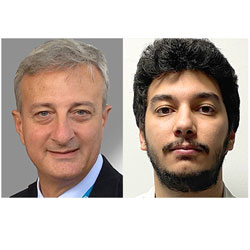 Giacomo Oteri, DDS, MD and Matteo Peditto, DDS, PhD, MSc More and more frequently, the oral surgeon uses analogic and digital diagnostic tools and workflows to perform oral and implant surgery procedures Does the use of these technologies always improve the precision of interventions, reducing morbidity and invasiveness? The current advantages and limitations of analogic and / or digital pathways in various clinical applications will be shown. Recorded - October 11, 2022
Giacomo Oteri, DDS, MD and Matteo Peditto, DDS, PhD, MSc More and more frequently, the oral surgeon uses analogic and digital diagnostic tools and workflows to perform oral and implant surgery procedures Does the use of these technologies always improve the precision of interventions, reducing morbidity and invasiveness? The current advantages and limitations of analogic and / or digital pathways in various clinical applications will be shown. Recorded - October 11, 2022

